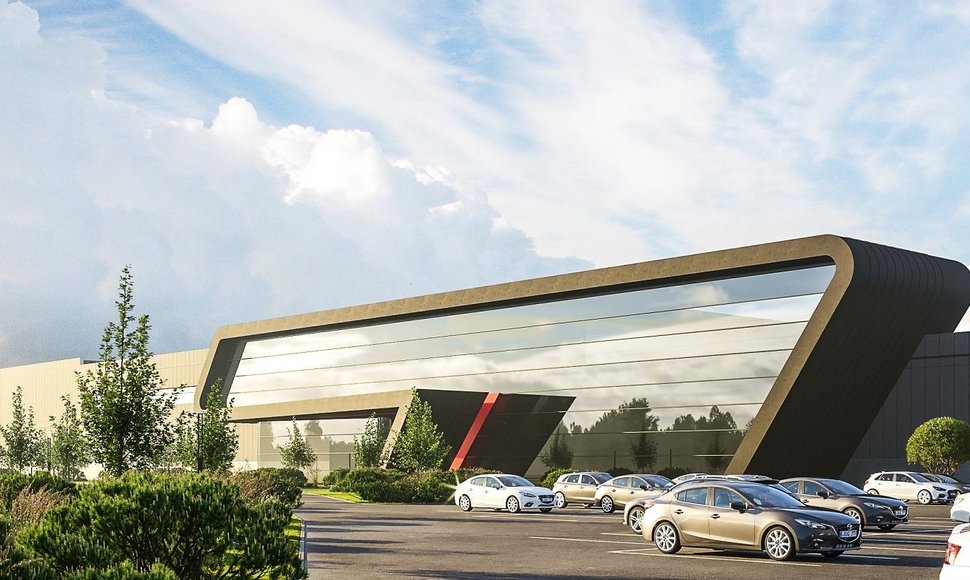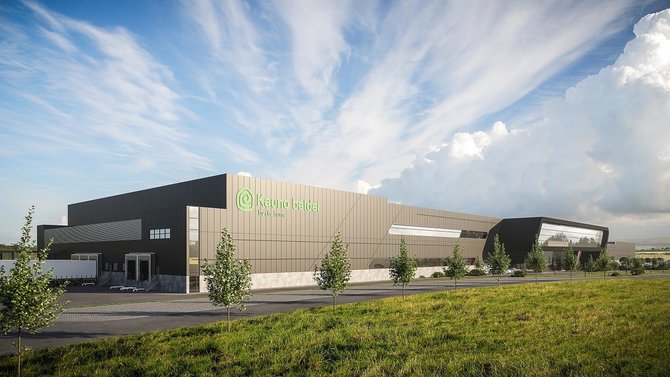Strengthening position in foreign markets
“In order to gain a larger market share in our largest export markets, we must continue investing and improving our operational efficiency. Our ambitious goals and international expansion have outgrown our current premises, and the new factory will allow us to increase production output by more than two times within five years, reaching sales of at least 70 million euros,” says Kauno Baldai director Tomas Mauricas.
According to Mauricas, the search for the most suitable location for a new factory continued for a year and a half across the city and surrounding region. However, upon a thorough analysis of available capacities and evaluating alternatives, it was decided to expand in the company’s current territory. The decision was based on several core arguments: comfortable transportation for the staff, available development space, and faster manufacturing transfer.
Aside from the pandemic year, Kauno Baldai has seen almost 20 per cent annual sales growth over the past few years, by constantly developing contacts in foreign markets, the collections designed by the company itself, its good reputation among clients, and the quality it offers has contributed to the Kaunas-based company’s products being in demand in both the older Scandinavian and Benelux markets and German markets. A modern factory will help not only satisfy this demand but also to enter other Western European markets.
A modern factory in an innovative building
The new Kauno Baldai factory building was designed by the architects of Gediminas Jurevičius‘ architecture studio, Gediminas Jurevičius and Tomas Vaičiulis.
“The dynamic form of building architecture was dictated by the rapid development and ambitious vision of Kauno Baldai itself. The totality of its façade elements seeks to form the impression of movement, a driven direction, and an innovative company. Industrial buildings rarely look exceptional, but in this case, it was a pleasure to work with a client who cares not only about the manufacturing square footage, but also architectural expression and the use of environmentally friendly technologies,” says architect Tomas Vaičiulis.
The option has been made available for the construction of a roof-based solar power plant, an “air-to-air” heating system, and smart LED lighting because the company, just like the entirety of the SBA Group, uses only green electricity from renewable sources. Most of the new building will be dedicated to new manufacturing premises and warehousing, but there are also plans for a product exhibition hall with a large skylight, which will allow for natural lighting, and an administrative office.
According to Mauricas, the company is to expand its team by a quarter by 2025, reaching almost 500, and currently, the project for the new factory has been presented to relevant city institutions for consideration. It is planned for construction work to begin as soon as all necessary procedures and arrangements are completed in the second half of this year, with the building to be completed and the factory to reach full capacity in 2023.
Kauno Baldai exports 100 percent of its production. The company currently employs nearly 400 staff members, and its sales reached 20.1 million euros in 2020. Other than this company, the SBA furniture sector also includes SBA Home (SBA Baldų Kompanija), which manages Klaipėdos Baldai, Germanika, Šilutės Baldai, Visagino Linija and Mebelain in Belarus, and in 2020, the entire SBA furniture sector’s sales reached 303.6 million euros. Aside from furniture manufacturing, SBA also operates in the textile and real estate sectors, and the group’s companies employ over 5,000 staff members, exporting their production to over 50 countries worldwide.
This article was edited by expert copywriter and proofreader Vicki Leigh. Find out more about her professional writing and editing services at twoflowercactuscreative.com













